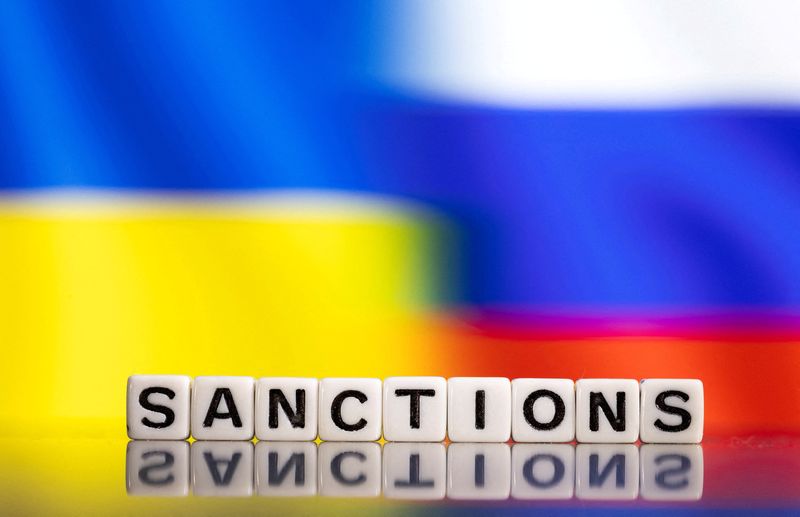MOSCOW (Reuters) -Russia hopes its stock market will benefit from a scheme beginning this month where Russians who own frozen foreign securities will be able to apply to sell them to foreigners with frozen assets in Russia, a government minister said on Tuesday.
Moscow presents the plan as a way for both Russian and foreign investors to free up assets that have been blocked by Western sanctions and Russian counter-measures since the start of the war in Ukraine.
Deputy Prime Minister Ivan Chebeskov said the blocking of assets - such as shares held by Russians in U.S. companies - had dented small investors' confidence in stock markets in general, but most people still saw shares as a good investment.
"Therefore, I think that it is quite expected that part of this money, maybe most of it, will be returned and invested ... in our Russian shares and securities," he told a conference in Moscow.
The finance ministry set out the mechanism for the swap on Monday, saying Russians with frozen foreign assets who wanted to take part must apply to a local broker, Investitsionnaya Palata (Investment Chamber), between March 25 and May 8.
The Russian-owned foreign securities will be pooled into lots which foreign buyers can bid for between June 3 and July 5, and pay for using funds from special "type-C" accounts in Russia, which are otherwise effectively blocked.
Britain's Foreign, Commonwealth & Development Office said Russia's appointment of a broker to manage the scheme had no relevance or impact on sanctions.
A spokesperson said it highlighted "increasingly desperate attempts" by President Vladimir Putin to mitigate the effect of sanctions.
Bernard Horn, president and portfolio manager at Polaris Capital Management, a Boston-based equity investment firm which owns shares in Russia's biggest diamond producer Alrosa, said he viewed Russia's move as "more of the fog of war and investing".
"As far as we're concerned we're still operating fully under all the sanctions," he said.
Euroclear, one of the depositories which holds foreign securities of Russian investors, said it had no comment as it is difficult to assess if the Russian proposal is doable at the moment.

But Alexey Sedushkin, CEO of the Investitsionnaya Palata brokerage, said the scheme was "a win-win situation for both Russian and international retail investors", and that no regulatory restrictions would be violated.
As a result of sanctions, more than 3.5 million Russians have frozen assets abroad worth around 1.5 trillion roubles ($16.3 billion). They can apply to sell up to 100,000 roubles worth of foreign securities under the scheme. According to the central bank, 80% of affected Russian investors have frozen foreign assets up to that threshold.